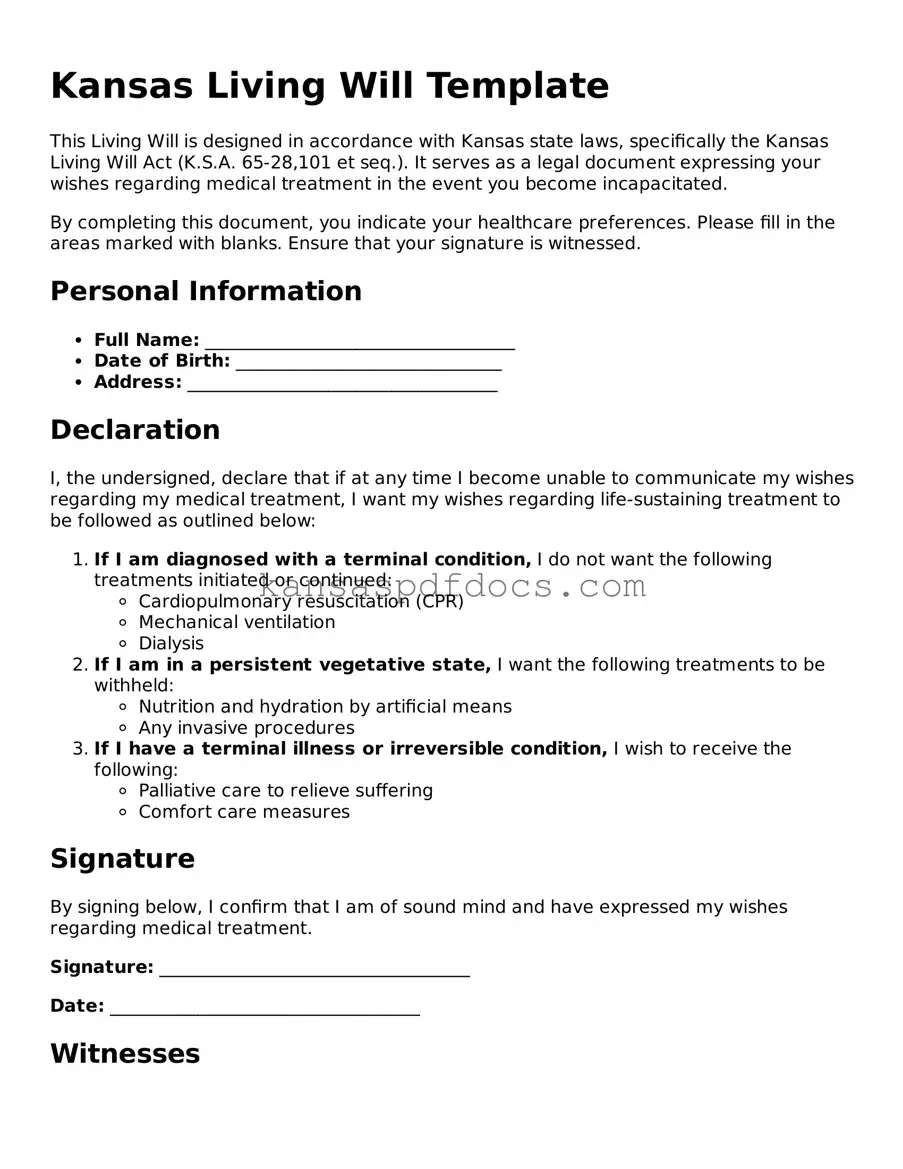Valid Living Will Template for Kansas State
A Kansas Living Will form is a legal document that allows individuals to outline their preferences for medical treatment in the event they become unable to communicate their wishes. This form ensures that your healthcare decisions are respected, providing clarity to your loved ones and medical professionals. By completing a Living Will, you take control of your healthcare choices, even when you can't voice them yourself.
Access This Form Now

Valid Living Will Template for Kansas State
Access This Form Now
Your form isn’t ready yet
Edit and finalize Living Will online without printing.
Access This Form Now
or
Get PDF Form
